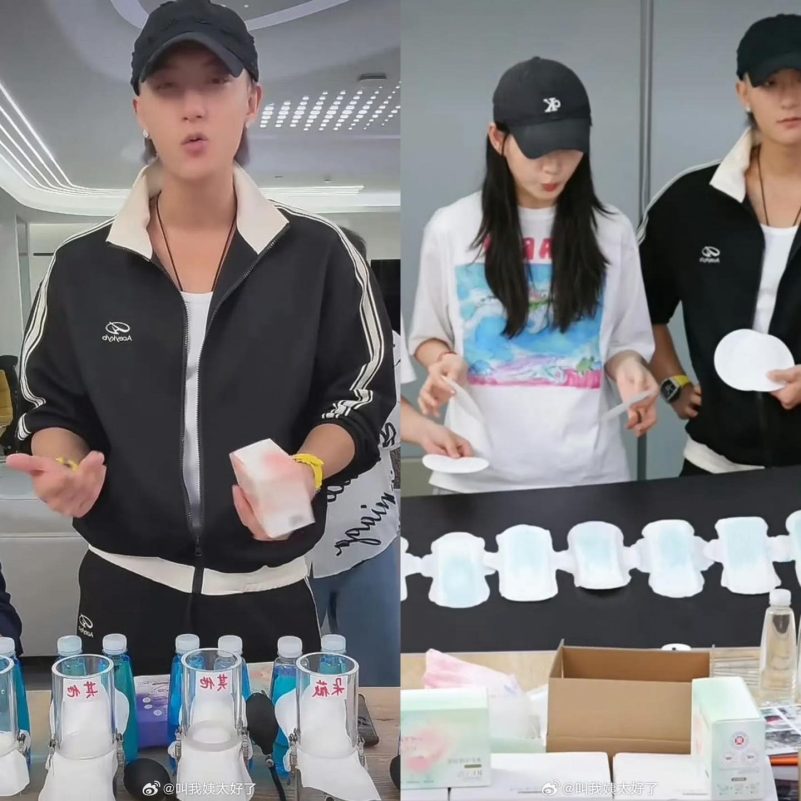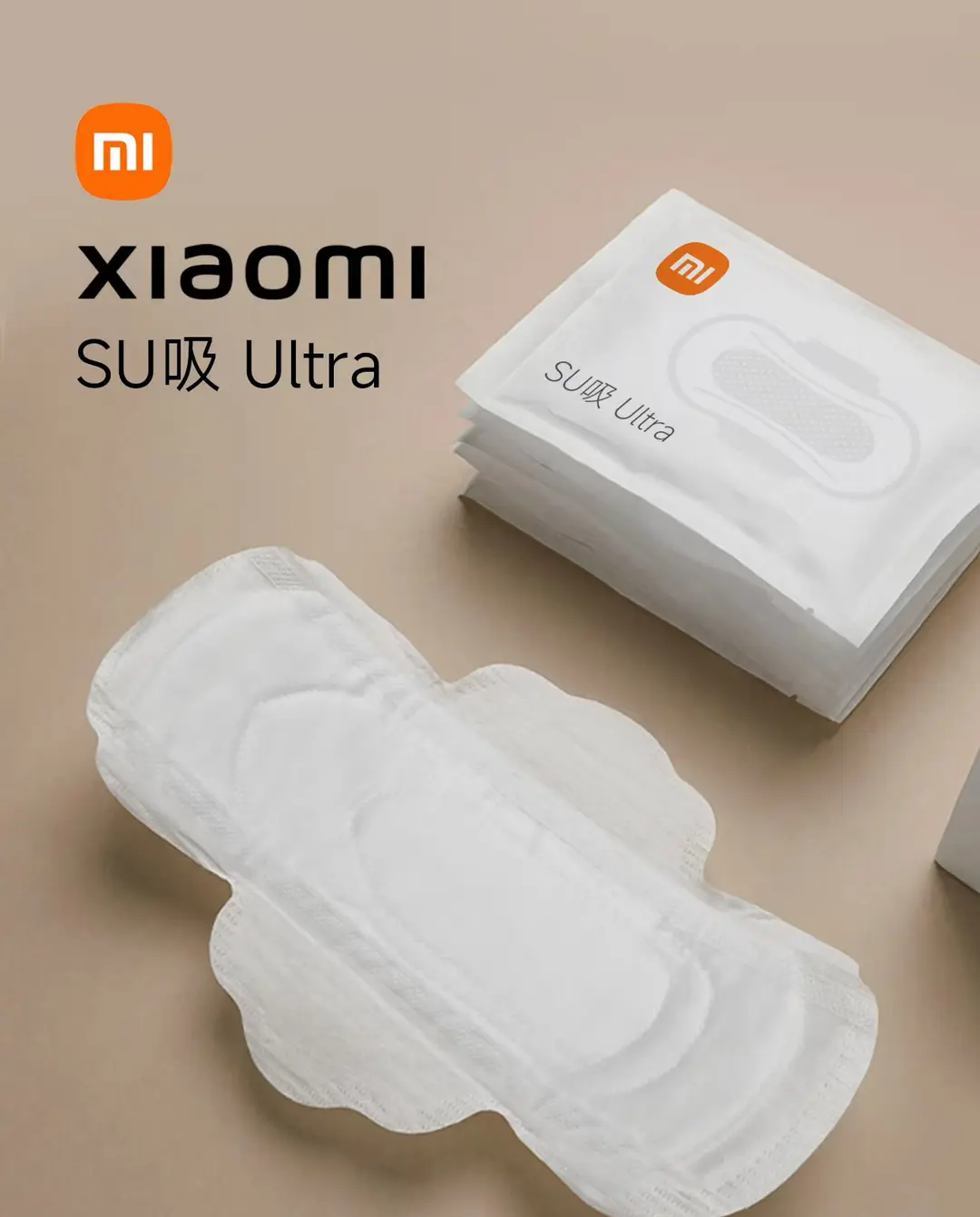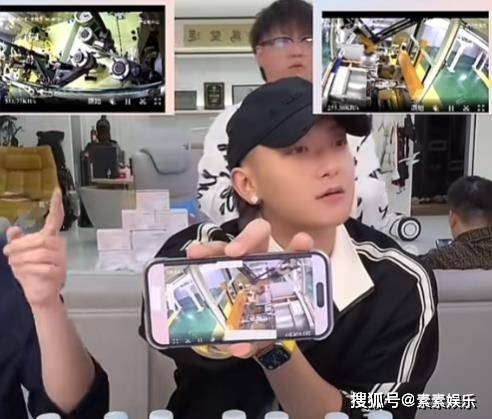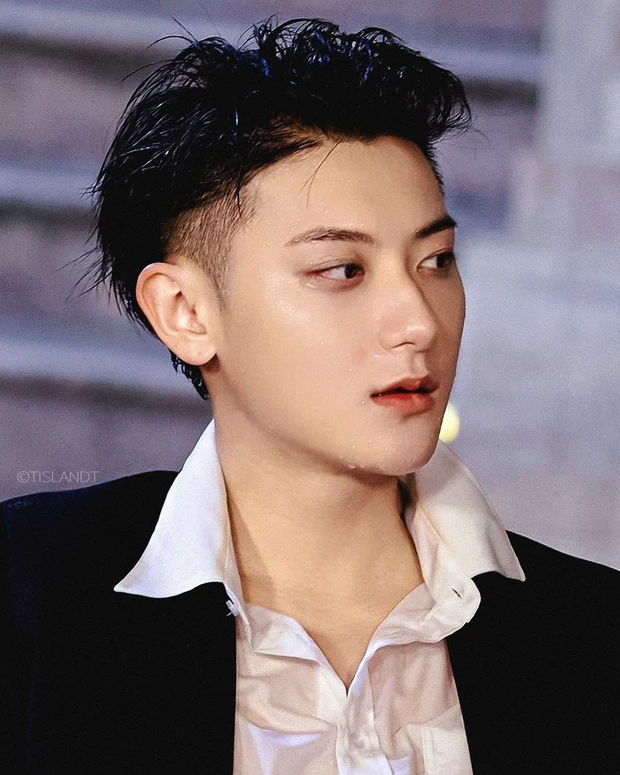In March 2025, Chinese singer-actor Huang Zitao shocked the public by announcing his entry into the sanitary pad market. With bold promises of “complete transparency” and a 24/7 livestream of his factory operations, the move sparked heated debate across social media.
“Everything is produced by machines—the first person to touch the product is the customer,” Huang Zitao emphasized during a livestream.

This unprecedented approach won him praise from netizens. His promotional campaign offering 49,500 trial packs of sanitary pads for just 1 cent sold out in under a minute yet also resulted in a loss of over 460,000 followers who accused him of attention-seeking.
A Crisis of Trust in an Essential Industry
Huang Zitao’s entrance into the industry is no coincidence. Just weeks prior, Xiaomi founder Lei Jun made headlines when asked if his company would ever venture into sanitary pads. He cryptically responded, “If the market needs it, Xiaomi can do anything.” The comment sparked a viral movement: #XiaomiSaveSanitaryPads, exposing the deep-seated distrust in the sector.

Long viewed as a monthly essential for women, the sanitary pad industry in China has been rocked by recurring scandals. CCTV’s investigative show “3.15” exposed severe violations in the production of sanitary pads, diapers, and disposable underwear: defective products were recycled, medical waste was mixed in, factory conditions were unsanitary, workers used bare hands, and bacterial counts far exceeded safety limits.
In early 2025, Chinese media outlet 163 reported that several brands were using low-grade cotton, some containing illegal fluorescent agents. Absorption rates were as low as 20ml/min—well below the standard 30ml/min. Alarmingly, 87% of consumers expressed concern over “black cotton” (of unknown origin), yet over 80% of brands outsource production, making traceability nearly impossible.
High Profits, Low Standards
Despite boasting over 45% gross profit margins, many sanitary pad companies spend up to 60% of their budgets on advertising rather than quality improvement. Some slash prices by compromising safety. As one consumer quipped:
“Buying sanitary pads feels like a blind box. You’re gambling with your health.”
Top-tier market share remains dominated by international brands like Whisper and Sofy (60%), while domestic players fight for space in the budget market. Gen Z consumers are demanding safer, biodegradable, and chemical-free options—yet legacy brands struggle to keep up.
“Consumers want more than just affordability, they demand safety. This is the bottleneck traditional Chinese brands haven’t solved,” wrote 163.
Outsiders Disrupt the Game
Huang Zitao’s strategy directly targets that bottleneck. By offering his product at 15 yuan per pack, 30% cheaper than imports, he exposes the sector’s high margins while promoting safety and transparency.

His factory is almost fully automated, with only packing and shipping done manually. He even installed a UV-lit inspection room to detect yellow stains on cotton. Before launch, Huang Zitao publicly released his product’s quality inspection certificate, putting his reputation on the line.
The limited-time trial sale proved the demand: all 50,000 packs were snapped up within minutes.
Despite losing half a million followers, many applauded his integrity. Chinese outlet 163 remarked:
“History shows that true disruptors are often outsiders. Xiaomi transformed electronics with high-quality, affordable gadgets. Tesla redefined cars with software. Huang Zitao is applying the same ‘smart factory + livestream oversight’ model to feminine hygiene, pricing his products 30% below imported brands.”
Will It Work?
Skepticism remains over whether a celebrity-led factory can deliver consistent quality. Yet others commend Huang Zitao for keeping his promises, something not all public figures achieve.

“He’s controversial, but he followed through—something rare in this industry,” wrote one viewer.
Whether this move is an earnest effort to fix a broken industry or a savvy PR maneuver, Huang Zitao has forced an overdue conversation about hygiene, safety, and transparency. His gamble may reshape not only consumer expectations but also how essential products are produced and marketed in the future.

